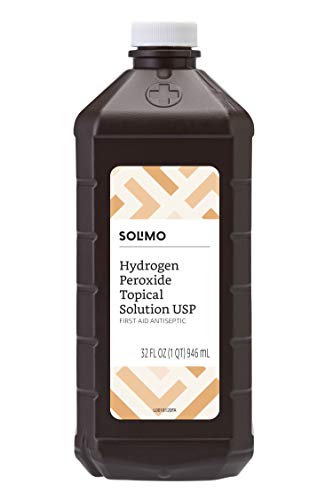After spending the day at the lake with your family or cooking a delicious seafood dinner, there is nothing worse than smelling like dead fish. Bad smells can ruin your clothes, so it is understandably frustrating that fish smells are so stubborn and difficult to remove. Follow along as we explain the best methods for how to get fish smell out of clothes!
Most fishy smells react well to being cleaned with acidic products like vinegar or lemon juice. The acidity works to neutralize the alkaline particles that cause many fishy smells, eliminating their odors from your clothing. These products work best with warm water, which expands cloth fibers to release trapped particles.
However, the most effective treatment for the smell will ultimately depend on what caused it in the first place. Keep reading to learn more about the common causes of fish smells on clothes, and what methods you can use to rid yourself of these pesky odors for good!

Quick Navigation
Why Does My Clothing Smell Like Fish?
If you hate the smell of fish and are trying to figure out how it got into your clothes, the answer may not always be straightforward. Each of the methods we discuss in this article remove odors in unique ways, and some will work better than others on certain types of smells. If you can figure out the culprit behind the fishy odor, you will be able to choose the method that will best suit your needs.
Contact with Fish
A common reason why your clothes may smell like fish is that they have been around fish, the water that they live in, or products containing fish oil. You could have gone on a recent fishing trip, cooked your family a nice dinner, or even cleaned out a fish tank you have in your home. Any direct contact with fish or their environment can cause a fishy smell.
These smells usually come from organic sources, like the oily residue that fish are known to leave behind. They are also often alkaline in nature. Because of this, these smells may benefit from treatments that break down organic material or use an acid to remove odors.
Chemicals on the Fabric
Clothing is often treated with formaldehyde resin to help dyes to penetrate deeper during production or to prevent wrinkles. This is why many clothes that are shipped overseas smell fishy, as they are treated with the chemical before they are transported.
Smells like this benefit from all-around odor reducers that tackle both acidic and alkaline odors. Washing the clothing multiple times can also help to remove the chemical and its odor from the fabric.
Genetics
In rare cases, the fishy smell in your clothes could be coming from your own genes! Trimethylaminuria, also known as the ‘fish odor syndrome,’ is a rare genetic disorder that gives people with this condition a constant fishy smell, regardless of how clean they or their clothes are.
This smell will inevitably end up on the clothes themselves and can be difficult to remove. This is another example of an organic smell that could benefit from washing methods that break down organic material.
Mold and Mildew
Fishy smells can also be caused by clothing that has been allowed to stay wet until mold or mildew has formed. These smells can also cling to the inside of your washing machine, either due to clothes sitting wet in the basin for too long or due to water getting trapped in the seals or other parts of the machine.
Either way, mold and mildew are also organic odors that can usually be treated using a method that breaks down organic material or that helps to kill bacteria and germs. See the methods listed below for recommendations to treat these types of smells.
Hygiene
Another cause of fishy smells is bacteria that come from not washing regularly. You should try to wash your clothes and yourself frequently to reduce bacteria buildup and keep smells from clinging to you. Smells caused by hygiene will react best to methods that can kill off this bacteria.
How to Get Fish Smell Out of Clothes: 9 Easy Methods
1. Baking Soda Soak
 Most bad smells come from particles that attach themselves to your clothing, and are usually either strongly acidic or strongly alkaline. Baking soda is a neutralizer that brings the acidity or alkalinity of these particles down to a more neutral level. By doing this, it ends up reducing or eliminating the smells altogether.
Most bad smells come from particles that attach themselves to your clothing, and are usually either strongly acidic or strongly alkaline. Baking soda is a neutralizer that brings the acidity or alkalinity of these particles down to a more neutral level. By doing this, it ends up reducing or eliminating the smells altogether.
To get rid of smells with baking soda:
- Mix ½ cup of baking soda into a sink or basin full of warm water.
- Add your clothes to the basin to soak. You will want to keep them in the water for as long as possible. This will work the best if you fully submerge your clothes and leave them soaking overnight.
- After your clothes have soaked, wash them as you normally would. Use water as hot as the clothes can take.
- Air-dry the clothes outdoors in direct sunshine.
You can do this multiple times if the smell sticks around after the first wash. Just be careful not to dry your clothes in your electric dryer until you are sure the smell is completely gone, or you could accidentally trap it in your clothes.
2. Vinegar Wash
 Using vinegar is another common trick for getting rid of fishy smells. Vinegar is acidic and can neutralize alkaline odor particles, like many of the residues left behind by direct contact with fish. Neutralizing these particles eliminates the smells that they give off.
Using vinegar is another common trick for getting rid of fishy smells. Vinegar is acidic and can neutralize alkaline odor particles, like many of the residues left behind by direct contact with fish. Neutralizing these particles eliminates the smells that they give off.
For this method:
- Mix ½ cup of white vinegar into a sink or basin full of warm soapy water.
- Immerse the clothing and soak in this mixture overnight.
- Remove the clothing and wash it like you normally would, using your regular laundry detergent. For an added boost, you can also add 1 cup of white vinegar to the regular wash cycle.
Be sure to only use white vinegar for this, as other types can leave stains on your clothing. If the smell of the vinegar sticks around after the wash, run the clothes through a regular cycle again to get rid of any traces left behind.
3. Borax
 Borax is a common laundry additive that boosts the washing power of your regular detergent. It is particularly good at getting rid of lingering smells because it is strongly alkaline and will react with any acidic molecules clinging to your clothing.
Borax is a common laundry additive that boosts the washing power of your regular detergent. It is particularly good at getting rid of lingering smells because it is strongly alkaline and will react with any acidic molecules clinging to your clothing.
To use Borax on fishy smells:
- Sprinkle ½ cup of Borax in the bottom of your washing machine basin before adding your clothes and regular detergent.
- Run your laundry through a normal wash cycle, using your regular settings.
- Once the cycle has finished, hang the damp clothes outside to dry in the sun.
Remember, Borax is less effective when used alone and is mainly intended to boost the power of your regular laundry soaps.
4. Vodka Spray
Vodka is a classic remedy for stubborn odors because it or any alcohol for that matter kills bacteria that linger and cause fishy odors on your clothing. You should be sure to only use vodka for this since it is clear and its smell will evaporate once it is dry, unlike many other alcohols.
To use this popular drink on your fishy smells:
- Pour plain vodka into a clean spray bottle or mister.
- Spray the smelly clothes with the vodka, paying particular attention to areas where you know the smells are the worst. The alcohol itself will smell strong at first, but as it evaporates it will disappear entirely.
If the stubborn smell lingers after you use the spray method, you can instead do a vodka soak. Be forewarned, you definitely won’t want to use your expensive stuff for this! To make the soak:
- Fill a sink or basin of water with a 2:1 ratio of cold water to vodka. A good measure for this would be ½ gallon (64 oz) of water and 1 quart (32 oz) of vodka.
- Add the clothing to the mixture and leave to soak for up to an hour. Be sure the clothing is fully submerged to get the full treatment.
Once you have completed either method, you will need to air-dry your clothes outside in the sunshine. This will help the alcohol and its smell to evaporate completely. After the clothes are dry, you can wash and dry them as you normally would.
5. Dish Detergent
 Dish detergent is useful for more than just washing your silverware. Most dish detergents are formulated to cut through food grease, which makes them perfect for tackling the oily residues that fish can leave behind. You can use dish detergent in place of your regular laundry soap, just in smaller amounts to avoid creating too many soap bubbles in your washing machine.
Dish detergent is useful for more than just washing your silverware. Most dish detergents are formulated to cut through food grease, which makes them perfect for tackling the oily residues that fish can leave behind. You can use dish detergent in place of your regular laundry soap, just in smaller amounts to avoid creating too many soap bubbles in your washing machine.
To do this:
- Add ⅛ cup of dish detergent to your machine during your regular cycle.
- Before the rinse cycle begins, stop your washing machine and allow the clothing to soak for 3-4 hours.
- Allow the machine to rinse and spin the clothes as usual to end the wash cycle.
This alone should remove any smells from leftover fish oils or residues. But if needed, you can also add 1 cup of white vinegar to the soaking mixture to give it an added boost
6. Hydrogen Peroxide
 Hydrogen peroxide is effective because it breaks down any organic matter on your clothing that could be causing the fishy smells. This could include lingering oils or particles from any fish you have handled, as well as mold, mildew, or bacteria. As the organic matter breaks down, the smell should be eliminated.
Hydrogen peroxide is effective because it breaks down any organic matter on your clothing that could be causing the fishy smells. This could include lingering oils or particles from any fish you have handled, as well as mold, mildew, or bacteria. As the organic matter breaks down, the smell should be eliminated.
To use hydrogen peroxide on your fish odors:
- Add 1 cup of peroxide to your washing machine alongside your regular detergent.
- Wash your clothes using your normal wash settings on your machine.
Be sure to avoid pouring concentrated peroxide directly on your dry clothes, as it can bleach them. Peroxide is safe for colored clothing if it is diluted in a full washer basin of water.
7. Lemon Juice and Laundry Detergent
Lemon juice is another natural odor remover, and when mixed with laundry detergent it can help remove even the toughest of fishy smells from your clothing. Lemon juice, like vinegar, is effective because it is highly acidic and can help to neutralize odors created by alkaline molecules.
To use this method:
- Add 1 cup of laundry detergent and ¼ cup of lemon juice to a sink or basin full of warm water.
- Add the clothing and soak for 24 hours. You will want to stir the clothes several times to make sure that the mixture can equally reach all of the fabric.
Once the clothes have finished soaking, wash them as you normally would with your regular laundry soap.
8. Boiling Method (For White Clothes)
One of the easiest ways to remove stubborn fish smells from your clothes is by using boiling water. In fact, before the washing machine became a household staple many families boiled their clothing in a pot of water to remove smells and dirt from the fabric. Boiling the clothes would also help to kill any lingering germs and bacteria that cause odors to develop.
To use this method:
- Fill a large pot with water and bring it to a boil on your stovetop.
- [Optional] Add a tablespoon of lemon juice or vinegar to the mixture to give some extra smell-fighting power.
- Turn off the stovetop and add the clothes to the water. Allow the clothes to sit in the water for up to an hour.
This method is only safe for white clothes, made from fabrics that can withstand high temperatures. Be careful with synthetic fabrics like polyester or rayon, which can easily be damaged by this heat. Stick to clothes made from cotton, linen, and other natural fibers.
9. Natural Sunlight
Once you have washed any fishy-smelling clothes with the methods listed above, you can then harness the power of the sun to finish removing any lingering smells. The sun will kill any stubborn germs and bacteria still present that could be contributing to persistent fishy odors.
Specifically, be sure to:
- Hang your damp clothing on a clothesline or lay it flat on a surface in direct sunlight.
- Allow it to stay outside until fully dry.
You should never dry your clothing using an electric dryer until you are absolutely certain the smells are gone, as the dryer can trap or intensify smells still lingering on the fabric.
How to Remove Fish Smell From Carpet
Fishy smells can quickly take over your home, especially when they make their way into the carpet. To remove fish smells from carpet:
- Mix together equal parts of white vinegar and water in a spray bottle.
- Spray the carpet until it is saturated and let the mixture sit for 15-30 minutes.
- Use a towel to blot up any excess moisture, before covering the area in baking soda.
- Work the baking soda into the carpet with a towel or bristle brush, and allow it to sit for at least 24 hours until the area is completely dry.
- Vacuum the dry area until all of the baking soda is gone from the carpet.
The vinegar and baking soda combined should neutralize any particles in the carpet that are creating the fishy smells.
How to Get Rid of Fish Smell on Shoes
Often one of the first pieces of clothing to attract fishy smells is your shoes, especially while fishing or walking around lakes or rivers. The best way to keep these smells from sticking permanently is to act quickly, doing what you can to dry any trapped water as fast as possible even if you cannot wash the shoes right away.
Many cloth-sided shoes can be washed in a washing machine using one of the methods listed above. If your shoes cannot, try putting them in a plastic bag and placing them in your freezer to kill any lingering bacteria. Bacteria are one of the most common sources of a fishy smell, making this method particularly effective.
The vodka spray method described above is also a safe method for treating shoes that cannot be washed in a washing machine. Simply spray the shoes thoroughly with the vodka, before allowing them to dry outdoors in the sunshine.
Why Do My Clothes Smell Like Fish After Washing?

There are several reasons why your clothes could still smell like fish even after you wash them. The most likely reason is that the method of odor removal you used wasn’t the right method for the type of smell you are trying to tackle. Try using another of the methods listed above to see if you achieve better results.
If you machine dried your clothing before the smell was fully gone, it’s possible that you accidentally trapped the smell in the clothes, which will make it much harder to remove. Try to dry your clothing in the sunshine until you are sure the odor is fully gone.
The fishy smell could also be coming from your washer itself. Washing machines that are dirty or trap water along their seals or rims can develop a foul, fishy smell that can transfer to your clothing. These odors can also come from leaving clothing in the machine too long, and they end up smelling fishy or mildewy.
How to Remove Fish Stains From Clothes
If you notice right away that you have a stain from handling fish, blot the stain to remove as much of the residue as possible. Do not wipe the stain, or you could end up spreading it to other areas of your clothing. Apply cornstarch to the stain to help absorb any of the oil or residue still lingering after you have blotted it.
Alternatively, you can scrub fresh fish stains with salt before using a saltwater bath to lift them. To do this:
- Pour salt directly onto the fresh stain and leave for an hour.
- Scrub the salt off with a hard bristle brush. This will help to remove as much of the fresh residue as possible, while also helping to prevent any germs and bacteria that could cause smells to develop in the future.
- Mix 1-2 cups of salt into a sink or basin of cold water.
- Soak the clothes in this mixture for as long as possible, preferably overnight. You can then rinse them and wash them like you normally would.
After using either method, be sure to wash the clothes as quickly as possible for the best chance of removing the stain. Follow up with one of the odor-fighting methods listed above to prevent any fishy smells from clinging to your fabric even after the stain is gone.
Conclusion
Fishy smells can be one of the hardest odors to get out of clothing, but if you found that one of our 9 methods worked well for you, be sure to leave a comment below and share this article with your friends. Keep this guide handy to help you tackle any smells that could appear in the future!